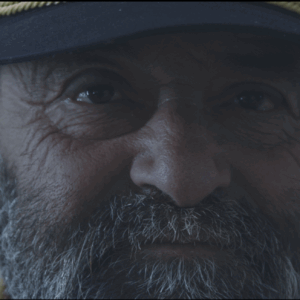When the heat becomes unbearable and the air feels too heavy to breathe, where can people go?
In cities like Barcelona, Madrid, Paris, Vancouver, and New York, a simple but powerful idea is gaining ground: climate shelters. These aren’t bunkers or high-tech capsules. They’re familiar spaces, schools, libraries, cultural centers, even sports halls temporarily opened to the public during heatwaves so that anyone can cool off, sit down, drink clean water, and feel safe again.
This isn’t a luxury. It’s a response to a public health emergency.
According to the World Meteorological Organization, 2024 was the hottest year ever recorded globally, and Europe experienced record-breaking heatwaves that claimed over 175.000 lives every year (source: WHO I August 2024 https://www.who.int/europe/news/item/01-08-2024-statement–heat-claims-more-than-175-000-lives-annually-in-the-who-european-region–with-numbers-set-to-soar)
These heatwaves are not anomalies. They’re becoming more frequent, more intense, and more dangerous, especially in cities, where the urban heat island effect can make temperatures several degrees hotter than surrounding areas.
That’s why climate shelters matter.
They’re designed to protect the most vulnerable: elderly people, those with chronic illnesses like heart disease or diabetes, people who live alone, those without access to air conditioning, and those without a home. In Barcelona, more than 200 shelters are distributed across the city, close to public transportation and open to everyone no ID, no reservation required. New York City runs an annual campaign each summer to inform residents about nearby cooling centers, often located in libraries or community centers.
What do these shelters offer?
Air conditioning, to lower body temperatures and prevent heat-related illness
Cold, clean drinking water, to stay hydrated
Comfortable seating and rest areas
Sometimes even basic medical care or emotional support for those in distress
But beyond physical relief, these spaces symbolize something deeper: climate justice. In a warming world, access to safety shouldn’t depend on income or privilege. Everyone deserves a place to escape the heat.
That’s what makes climate shelters so compelling. They’re simple. They don’t rely on cutting-edge technology or billion-dollar investments. They ask cities to use what they already have public spaces with a new mindset. In the summer, a school can become a shelter. A gym can become a place of rest. A library can become a literal lifeline.
Yet in countries like Tunisia, the idea still hasn’t entered public policy. Despite hotter summers and rising health risks, there are no formal climate shelters. Too often, authorities minimize the threat with a familiar phrase: “Don’t worry. Everything’s fine.”
But it’s not fine.
According to Tunisia’s National Meteorological Institute, average summer temperatures have increased by 1.4°C over the last three decades, and cities like Tunis and Sfax are now facing extreme heat alerts each year. Many neighborhoods, especially in poorer areas, have no green spaces, no public cooling, and limited access to health care. For thousands of residents, staying indoors during a heatwave isn’t enough their homes trap heat like ovens.
This presents a real opportunity. Tunisian municipalities, working with civil society, could pilot climate shelters in existing municipal buildings just for a few days at a time during heatwaves. These spaces wouldn’t just offer cool air. They could also reduce social isolation, mental stress, and climate anxiety, which are growing concerns globally. The Lancet Countdown on Health and Climate Change (2023) emphasized that extreme heat also worsens depression and increases emergency hospital visits for mental health issues.
So why wait?
Climate shelters are not about panic. They’re about preparation. About saying that in the face of rising temperatures, our best response is not indifference, but care. A climate shelter is a new kind of public service. A quiet act of resistance against the idea that only the wealthy deserve to be safe and cool.
If cities are becoming the frontlines of climate change, then maybe these small, simple spaces, open doors, clean water and cool air are our first real defense.














